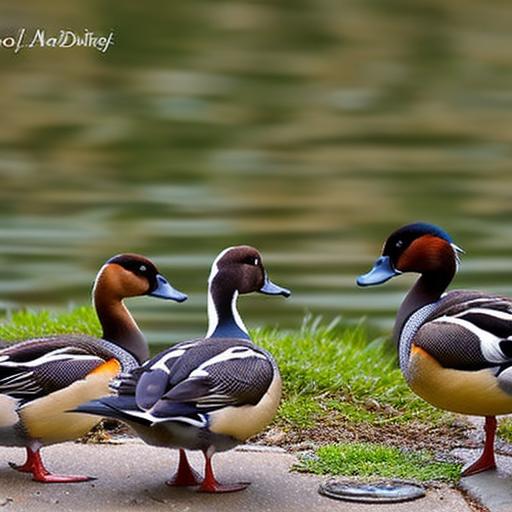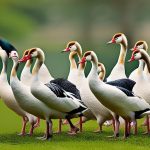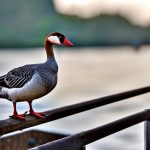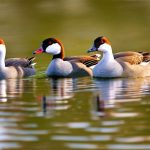Having a beautiful yard is a source of pride for many homeowners. It’s a space where you can relax, entertain guests, and enjoy the beauty of nature. However, unwanted guests like ducks and geese can quickly turn your yard into a mess. These waterfowl are attracted to open spaces and water features, and their presence can be frustrating and even damaging to your property. In this article, we will explore various methods for keeping ducks and geese out of your yard, allowing you to maintain the beauty and functionality of your outdoor space.
Key Takeaways
- Ducks and geese are attracted to yards with water sources, food, and shelter.
- Physical barriers such as fences and hedges can keep ducks and geese out of your yard.
- Bird netting can be installed to deter ducks and geese from landing in your yard.
- Decoys can be used to scare away ducks and geese, but they need to be moved regularly.
- Motion-activated sprinklers can be effective in repelling ducks and geese from your yard.
Understanding the behavior of ducks and geese
Before we delve into the methods for keeping ducks and geese out of your yard, it’s important to understand their behavior. Ducks and geese are attracted to water and open spaces, making your yard an ideal location for them to visit. They are social animals that often travel in flocks, so if one duck or goose finds your yard appealing, it’s likely that more will follow.
Ducks and geese are also opportunistic feeders, meaning they will take advantage of any available food sources. They have a varied diet that includes grass, insects, seeds, and even small fish. If your yard provides easy access to these food sources, it will be even more attractive to these waterfowl.
Identifying the reasons why ducks and geese are attracted to your yard
There are several factors that draw ducks and geese to your yard. One of the main reasons is the availability of food sources. If you have bird feeders or if there are fallen fruits or seeds in your yard, ducks and geese will be enticed to visit.
Water features also play a significant role in attracting ducks and geese. Whether it’s a pond, a pool, or even just a birdbath, these waterfowl are naturally drawn to water. It provides them with a place to swim, bathe, and find food.
Nesting opportunities are another reason why ducks and geese may choose to visit your yard. They prefer to nest in areas that are close to water and have ample vegetation for cover. If your yard meets these criteria, it’s likely that ducks and geese will see it as a suitable nesting site.
Creating physical barriers to keep ducks and geese out of your yard
One effective method for keeping ducks and geese out of your yard is to create physical barriers. Fences or walls can be built around your property to prevent these waterfowl from entering. The height of the barrier should be at least three feet to deter them from attempting to fly over it.
Another option is to install a floating fence in any bodies of water on your property. This will create a barrier that prevents ducks and geese from swimming into your yard. The fence should be anchored securely to the bottom of the water feature to ensure its effectiveness.
Installing bird netting to deter ducks and geese
Bird netting is another useful tool for keeping ducks and geese away from specific areas of your yard. It can be installed over plants, ponds, or other areas where you don’t want these waterfowl to access. The netting creates a physical barrier that prevents them from reaching their desired location.
When installing bird netting, make sure it is taut and securely fastened. This will prevent ducks and geese from getting tangled in the netting or finding a way underneath it. Regularly inspect the netting for any damage or gaps that may allow these waterfowl to enter.
Using decoys to scare away ducks and geese
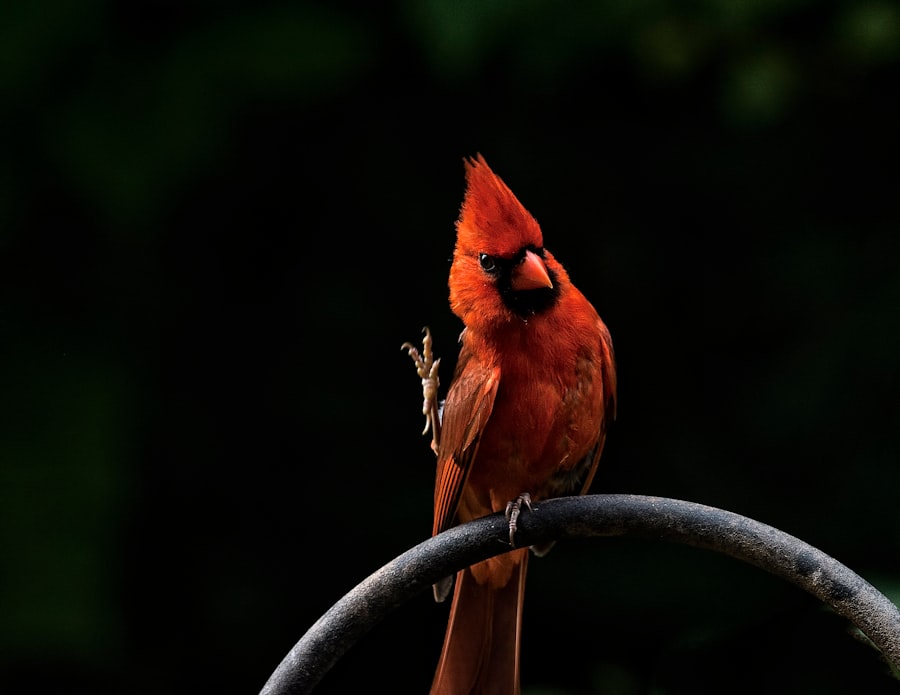
Using decoys is another method for deterring ducks and geese from your yard. Decoys can be in the form of fake predators, such as owls or hawks, or even other birds. The presence of these decoys can create a sense of danger for ducks and geese, causing them to avoid your yard.
Place the decoys strategically around your yard, focusing on areas where ducks and geese are most likely to congregate. Move the decoys periodically to prevent the waterfowl from becoming accustomed to their presence. This will help maintain their effectiveness as a deterrent.
Utilizing motion-activated sprinklers to repel ducks and geese
Motion-activated sprinklers are an effective and humane way to repel ducks and geese from your yard. These sprinklers are equipped with motion sensors that detect the presence of these waterfowl. When triggered, the sprinklers release a burst of water, startling and deterring the ducks and geese.
Place the motion-activated sprinklers in areas where ducks and geese are most likely to enter your yard. This could be near water features, feeding areas, or nesting sites. Adjust the sensitivity of the motion sensors to ensure that they are triggered by the presence of ducks and geese, but not by other animals or passing humans.
Applying repellents and deterrents to keep ducks and geese away
There are various repellents and deterrents available that can be used to discourage ducks and geese from visiting your yard. Natural options include planting vegetation that these waterfowl dislike, such as prickly or thorny plants. Ducks and geese are less likely to stay in an area that is uncomfortable or difficult to navigate.
Chemical repellents can also be effective in keeping ducks and geese away. These repellents emit odors or tastes that are unpleasant to these waterfowl, deterring them from entering your yard. Follow the instructions provided by the manufacturer when applying chemical repellents, and be mindful of any potential environmental impacts.
Removing food sources to discourage ducks and geese from visiting your yard
One of the most effective ways to discourage ducks and geese from visiting your yard is to remove any potential food sources. This includes birdseed, fallen fruits, or any other food that may be accessible to these waterfowl. By eliminating their food source, you make your yard less appealing and encourage them to seek food elsewhere.
Regularly clean up any fallen fruits or seeds in your yard, and consider using bird feeders that are designed to deter larger birds like ducks and geese. These feeders have mechanisms that prevent access to the food by larger waterfowl, while still allowing smaller birds to feed.
Planting vegetation that ducks and geese dislike
Another method for keeping ducks and geese out of your yard is to plant vegetation that they are less likely to enjoy. Ducks and geese prefer open spaces with short grass, so planting taller grasses or shrubs can make your yard less attractive to them.
Consider planting prickly or thorny plants, as ducks and geese are less likely to stay in areas that are uncomfortable or difficult to navigate. Examples of such plants include holly bushes, rose bushes, or cacti. These plants not only deter ducks and geese but also add beauty and texture to your yard.
Seeking professional help to manage duck and geese populations in your area
If you’re dealing with a large population of ducks and geese in your area, it may be beneficial to seek professional help. A wildlife management company can assess the situation and provide recommendations for managing the population. They may suggest methods such as egg addling or relocation to reduce the number of ducks and geese in your area.
Professional help can also ensure that any methods used are humane and comply with local regulations. They have the expertise and experience to effectively manage duck and geese populations while minimizing any negative impacts on the environment.
Dealing with unwanted guests like ducks and geese in your yard can be frustrating, but there are various methods for keeping them out. By understanding their behavior and identifying the reasons why they are attracted to your yard, you can implement strategies to deter them. Whether it’s creating physical barriers, using decoys, or applying repellents, there are options available to protect your property. Take action today to maintain the beauty and functionality of your yard and enjoy a duck and geese-free outdoor space.
If you’re looking for ways to keep ducks and geese out of your yard, you may also be interested in learning about the incubation period for goose eggs. Understanding this process can help you better manage and control the population of these birds in your area. Poultry Wizard offers a comprehensive article on “What is the Incubation Period for Goose Eggs?” that provides valuable insights and tips. Check it out here to enhance your knowledge on this topic. Additionally, if you’re interested in breeding chickens, Poultry Wizard also has an informative article on “How Long for Chicken Eggs to Hatch Naturally?” which can be found here. Lastly, if you’re considering keeping chickens but don’t have a coop, Poultry Wizard offers a unique solution with their “Rent a Chicken Coop” service. Find out more about it here.
FAQs
What are some common problems caused by ducks and geese in yards?
Ducks and geese can cause damage to lawns, gardens, and landscaping by eating plants and grass, leaving droppings, and creating holes. They can also be aggressive towards humans and pets.
What are some effective ways to keep ducks and geese out of yards?
Some effective ways to keep ducks and geese out of yards include using physical barriers such as fences or netting, using decoys or scare tactics, and removing any sources of food or water that may attract them.
Are there any humane methods for keeping ducks and geese out of yards?
Yes, there are several humane methods for keeping ducks and geese out of yards. These include using noise deterrents, such as loud noises or water sprays, and using visual deterrents, such as reflective tape or balloons.
What should I do if I encounter an aggressive duck or goose?
If you encounter an aggressive duck or goose, it is important to remain calm and avoid making sudden movements. Slowly back away from the bird and give it plenty of space. Do not attempt to feed or touch the bird.
Is it legal to harm or kill ducks and geese that are causing problems in my yard?
In most cases, it is illegal to harm or kill ducks and geese that are causing problems in your yard. It is important to check with your local wildlife agency to determine the laws and regulations in your area.
Meet Walter, the feathered-friend fanatic of Florida! Nestled in the sunshine state, Walter struts through life with his feathered companions, clucking his way to happiness. With a coop that’s fancier than a five-star hotel, he’s the Don Juan of the chicken world. When he’s not teaching his hens to do the cha-cha, you’ll find him in a heated debate with his prized rooster, Sir Clucks-a-Lot. Walter’s poultry passion is no yolk; he’s the sunny-side-up guy you never knew you needed in your flock of friends!

